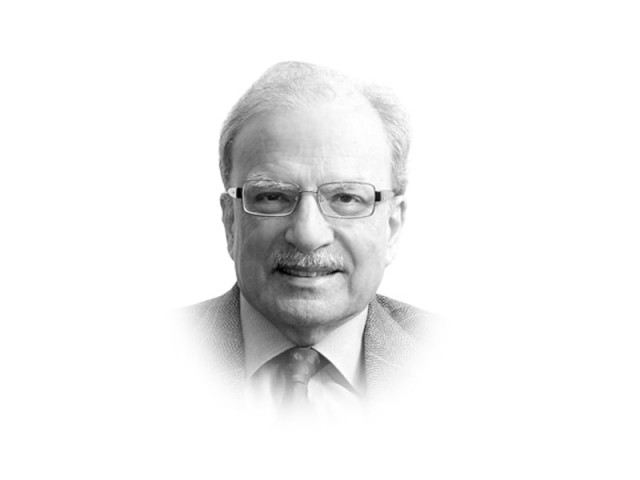A new paradigm
The decision by the cabinet to grant MFN status to India is a tectonic shift in relations with its neighbour.

The Pakistani decision concerning the grant of MFN status was received with enthusiasm by the Indian leadership. Anand Sharma, India’s commerce minister, hailed it as part of a “paradigm shift” and said that New Delhi “deeply appreciated” the move. It will be beneficial for both countries, he said. Pakistan’s initiative had the support of its powerful military which had continued to look at India with suspicion. The Pakistani military’s approval was implied by Firdous Ashiq Awan, Pakistan’s information minister in announcing the cabinet’s decision. “This was decision was taken in the national interest and all stakeholders, including our defence institutions were on board” she told the press.
The business community on both sides of the border applauded the move. Many believed that there will be almost immediate benefits in terms of reducing the transaction costs of doing business between the two countries. The Federation of Indian Export Organisations estimated that trade between the two nations could double from current levels of about $2.7 billion a year simply by the rerouting of goods currently sent via Dubai and through some other channels. But according to one newspaper report, “the Confederation of Indian Industry cautioned that road blocks such as stringent visa rules, non-tariff barriers and communication problems still need to be dismantled and more trade routes opened up” for full benefits to be realised.
But the real significance in this breakthrough will go much beyond increasing India-Pakistan trade. It will provide foreign policymaking in Pakistan with a new base, moving the country away from total preoccupation with the United States. At this time, relations with America have become highly strained. Improving relations with India will certainly help to place the dealings with Washington in a new context. Although the ground on which Pakistan has sought to structure its relations with the United States over the past six decades has continuously moved, it always included concerns about India.
Pakistan got close to America as a part of its effort to build its defences to protect itself from the threat it then perceived was posed by India. That was essentially the reason why Ayub Khan, first as defence minister and later as the country’s president, negotiated a series of defence agreements with the US. Pakistan bound itself in arrangements that covered a wide geographic front, stretching from the Mediterranean to the Pacific. Good relations with Washington also brought economic help to the country at the time Pakistan was attempting to speed up the rate of economic growth. That was a by-product, not the real motivation behind the effort to get close to Washington.
Later, during the presidency of General Ziaul Haq, while economic assistance from the US became the main motive for association with Washington, concern with India remained at the back of the policymakers’ mind. Both economic considerations and the need to strengthen its defences against India were the reason why Zia famously turned down the offer of help by President Jimmy Carter in return for Islamabad’s assistance to throw the Soviet Union out of Afghanistan. He famously called the American offer “peanuts”. Islamabad wanted more from the US than Carter’s America was prepared to give. Carter’s defeat in the elections of 1979 brought Ronald Reagan to power in Washington. The new head of the American state was prepared to do much more than his predecessor to destroy what he called the “evil empire”, the Soviet Union. Pakistan’s willingness to align itself with America to achieve this objective was welcome news in Washington. In return for Islamabad’s support to expel the Soviet Union from Afghanistan, America was prepared to provide copious amount of military and economic help.
By becoming a member of the American alliances in the 1950s and the 1960s, Pakistan was making a hypothetical commitment. It would support the US in any activity directed to stop the advance of communism in Asia and the Middle East. However, in the 1980s, association with the US meant providing active support in a military campaign — the one fought by the US in Afghanistan with the help of a number of proxies. This change produced a new dynamics in Pakistan’s situation. It shifted focus to Afghanistan in the making of policy and, at the same time, the country had to contend with many unanticipated consequences, being an active player in a battlefield close at hand. Among the latter were the rise of Islamic extremism in the country, weaponisation of Pakistani society and culture and ethnic conflict between some of the communities in the country. The large-scale migration of Afghans to Pakistan was to increase the Pashtun population in Karachi. The consequence of this particular development is still being felt in Pakistan’s largest city.
While the persisting concern with India was at the base of Pakistan’s Afghan policy, the entry of Afghanistan as a variable in the making of policy was to acquire increasing significance after the terrorist attacks on the US. Under General Pervez Musharraf and, after his departure, under the successor civilian government, curbing the rise of Islamic extremism and international terrorism associated with it became the basis of relations with the US.
However, with the easing of tensions with India, relations with the larger neighbour will become less of a factor in the crafting of foreign policy. A different kind of relationship with India would introduce a new variable in the way Pakistan looks at the world outside its borders. This will affect the country’s relations with the US as well.
Published in The Express Tribune, November 7th, 2011.














COMMENTS
Comments are moderated and generally will be posted if they are on-topic and not abusive.
For more information, please see our Comments FAQ